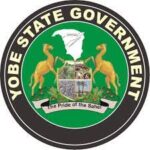Life in Nigeria today is hard, really hard. That’s because the economy is in bad shape. Many Nigerians are hungry and cannot get food, enough food, to eat. Many are sick and cannot afford the needed medication. The prices of necessities have gone beyond the reach of many Nigerians. Consequently, there is mass suffering in the land, resulting in most people feeling disconnected from the system.
Even the political leaders, from President Bola Tinubu to the state governors, have acknowledged this. In different messages, these leaders have admitted the above facts and also sympathised with the suffering Nigerians. However, beyond the sympathies and acknowledgements of suffering in the country, the governments must be seen to be taking actions that will stem the plunge in welfare and human dignity.
We need to reinvent the economy by actions. And if the governments fail to take credible actions on the economy in 2024, the current level of suffering could spin out of control. The state of the economy calls for coordinated actions borne out of painstaking policy frames.
Let us assume that the current government in Nigeria has spent the past six months studying the situation in the country. Let us also assume that the governments, at all levels, have by now come to a certain or reasonable understanding of the nature of the problems. Or even that they have agreed that there are problems in different areas of the country and economy that need to be tackled.
‘Why actresses are not begging for financial aid’
Kaduna youths use arts, poems to promote peaceful coexistence
Let’s further assume that after six months in office, they have decided that something must be done. They also had time to gather information that they used for their campaigns. With these, all political leaders, from the president to the various governors, should have come to grips with the problems of the country and their states, and what should be done. By now, they certainly know, not only the problems but also what must be done and how it should be done.
“The decision that something must be done provides a stimulus for action” is one of the profound statements by Robert M. Moroney and Judy Krysik in their book: Social Policy and Social Work: Critical Essays on The Welfare State.
Nigeria is currently at a critical junction, and only action can take the country beyond the confusion that reigns now. The Nigerian situation is calling for urgent policy actions.
Coming to a point of deciding to take action itself is not an easy task. This is what the time spent so far in office by our leaders should have provided them by now. It takes a long process of sifting through the current situation to know what the problem is like. Policies are formulated in response to such questions as: What is the situation on the ground? What is the problem? Why is it a problem? What can be done, and who will do it? Answers to these questions are not easy to come by.
This is where the problem arises in our public policy space. The problem has often not been that decisions have not been taken to take action. Nor is the problem that actions have not been taken. The problem has not been that what to do has not been said or prescribed.
Rather, the problem has often been that the process leading to that point of decision is often defective. Therefore, such processes, being out of sync with reality, ultimately lead to wrong prescriptions. This explains the fact that year after year, we end up with long prescriptions and messages on what has to be done, yet the economy remains the same or even gets worse. The quality of human life in the country deteriorates instead of improving.
At the centre of the whole morass in our society is a faulty or predatory, political economy. It pretends to be on the side of the people but is not in the true sense of the word. We have a political economy that believes that the people – the electorate- are only fit for the crumbs that fall from the masters’ tables. This is evident in the budgeting process, where the leaders allocate to themselves the bulk of the amounts to be spent in a year.
Consequently, the process of budgeting has lost its glitter because its public purpose has been diminished. Many Nigerians now look at the national budget with indifference, knowing that there is little or nothing in it for them. Whether in terms of appropriation of expenditure, many of our compatriots feel that they are not part of the yearly national budget.
Therefore, we need to reinvent our definition of political economy. We need a political economy that recognises and pursues the purpose of the state or government. That purpose is to lift the welfare of the people at any point in time. The overall welfare of the people- from physical safety to economic well-being – should be on the front burner of our national discourse. The concept of political economy underscores the point that the state exists to use every economic policy instrument at its disposal to advance the cause of the general populace on a sustainable basis. And which policy instrument is more powerful, in its reach and influence, than the budget?
This is why policy formulation must play a central role in the reinvention of our economy from this year going forward. Nigeria must move from words to actions. Such actions should arise from policy frameworks that are products of discernible processes that led to their formulations.

 Join Daily Trust WhatsApp Community For Quick Access To News and Happenings Around You.
Join Daily Trust WhatsApp Community For Quick Access To News and Happenings Around You.


